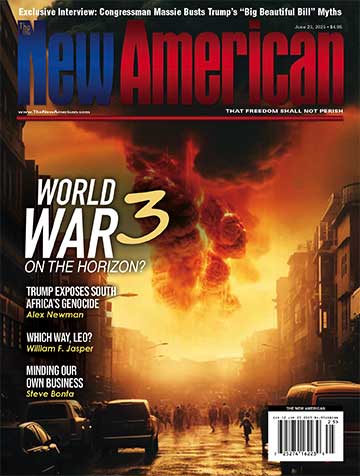
He has endeared himself by his persevering devotion to the great principles of our Revolution, and by his zeal, truly America, in maintaining our rights, our honor, and our interests, as a free and independent people. In his absence I could say much, which I cannot trust my feelings to utter in his presence. But, were he absent, I could not say more than would be due, nor more than I am sure would be echoed by every heart present. — James Madison’s toast of General Lafayette during the latter’s visit to Montpelier, November 1824
Introduction: Setting the Scene
In November 1824, a visitor of legendary reputation made his way to the quiet Virginia estate of Montpelier. This guest, Marie-Joseph Paul Yves Roch Gilbert du Motier de Lafayette, also known as the Marquis de Lafayette, or simply General Lafayette, had crossed the Atlantic at the invitation of Congress to tour the nation he had helped liberate nearly 50 years earlier. For the aging James Madison and his wife, Dolley, Lafayette’s arrival was a long-awaited reunion with a beloved friend and fellow revolutionary. Yet Lafayette’s visit was not just a personal meeting; it was a historic convergence of principles — a testament to the bonds forged in the fires of revolution and an enduring reminder of the vigilance required to preserve the blessings of liberty.
Lafayette’s Triumphal Return
Lafayette’s return to the United States in 1824 was more than a journey; it was a pilgrimage. The “Hero of Two Worlds,” celebrated as a French aristocrat-turned-champion of American independence, came back to a nation that viewed him with almost mythical reverence. As he traveled from state to state, he was met with parades, cheers, and heartfelt tributes from a people who saw in him a living connection to their revolutionary past. For Lafayette, these scenes were touching reminders of the ideals he had fought to defend. It was within this jubilant setting that he made his way to Montpelier to see Madison, a man whose intellect had shaped the very Constitution that safeguarded the freedom Lafayette had once fought to secure.
The Meeting of Minds and Memories
When Lafayette arrived at Montpelier, he was welcomed with open arms by James and Dolley Madison. The meeting was marked by warmth and mutual respect, an exchange between two men who had dedicated their lives to the cause of liberty, albeit in different ways. Madison, the meticulous thinker, had crafted the Constitution and championed a balanced government that protected individual rights. Lafayette, the idealist, had shed his blood on battlefields to ensure that the framework Madison created would be not merely theoretical, but an enduring reality.
As they spoke, the two men reflected on the shared history that bound them and the divergent paths their respective countries had taken. Madison, with his characteristic caution, listened intently to Lafayette’s stories of France’s tumultuous political landscape, from the revolutionary fervor that gripped the nation to the tyranny of Napoleon’s rule. Lafayette, still a fervent believer in republicanism, cautioned Madison on the dangers of unchecked power and the necessity of moral virtue in government.
Liberty, Fraternity, and Responsibility
Their conversation soon turned to a topic of deep importance to both men: the lessons learned from the American and French revolutions. Lafayette, having witnessed the extremes of both liberty and despotism in France, was firm in his belief that liberty must be carefully guarded. The French Revolution, he warned, demonstrated how easily a republic could fall prey to the excesses of its own ideals if virtue and restraint were not maintained. Madison agreed, reiterating his belief in a balanced government — a government where power was limited and liberty protected by the rule of law.
Dolley Madison, ever the gracious host, contributed her unique perspective. Known for her charm and her role in shaping the social fabric of Washington, Dolley reminded both men that liberty must be not only defended, but made appealing. Liberty, she insisted, must reside not only in government, but in the hearts of the people. She understood that the success of a republic depended on the virtue and character of its citizens as much as on the structure of its government. Her words served as a reminder that liberty was a shared responsibility, requiring cultivation at every level of society.
There were 13 ceremonial toasts of the marquis, including one from James Barbour, who proclaimed Lafayette to be “The Guest of the Nation; no where more welcome than in Virginia: She received his best services; he enjoys her best affections.”
A Warning to Posterity
As their discussion deepened, Lafayette and Madison voiced their shared concern for the future of the American experiment. Both men understood that liberty, though hard-won, could not be preserved by mere memory. It required vigilance, education, and a citizenry prepared to defend its rights against threats both foreign and domestic. Madison, who had spent his life studying the complexities of human nature and government, warned of the dangers posed by factions and the erosion of state sovereignty. He had observed with some trepidation the growing divides over issues like the spread of slavery and the scope of federal power, and he shared with Lafayette his concerns that these divisions might one day threaten the Union.
Lafayette echoed these concerns, urging Madison to remind Americans of the sacrifices and principles that had forged their republic. For Lafayette, the American Revolution had been more than a military struggle; it was a moral quest for a society free from oppression. He expressed a hope that Madison’s wisdom would inspire future generations to transcend petty partisanship and remember the nobler purpose of their republic. Lafayette knew, as did Madison, that liberty was not a permanent state but a fragile gift, one that required constant nurturing and a commitment to the values that had birthed it.
Enduring Legacy of Liberty
When Lafayette finally bid farewell to the Madisons and departed Montpelier, he carried with him a renewed hope for the American experiment, yet also a solemn knowledge that liberty’s foes never rest. The memories shared, the warnings given, and the ideals reaffirmed during that visit left an indelible mark, a legacy that would echo long after both men were gone.
Today, Lafayette’s visit to Montpelier serves as a reminder of the duty we inherit as beneficiaries of their sacrifice. The torch of liberty, passed down through the generations, demands our courage and commitment. Madison, Lafayette, and Dolley understood that freedom could never be a passive inheritance. It must be an active endeavor, a constant pursuit of the higher principles that define a free and virtuous society. Their gathering in November 1824 stands as a testament to the bonds of friendship, the wisdom of experience, and the resilience of the spirit of liberty.
Conclusion: A Call to the Present
In remembering that remarkable reunion at Montpelier, we are called not merely to admire these figures from history. We must emulate them, to rekindle in our own hearts the fire of their devotion to liberty, their understanding that freedom, though fragile, can endure if we possess the resolve to guard it. As we consider Lafayette’s visit and the words he shared with Madison, we are reminded that the work of defending liberty is never truly finished. We, too, face threats to freedom, and we, too, must find the resolve to meet them. The Madison-Lafayette reunion offers not only a glimpse into our past but a challenge to our present: to stand firm, to protect the rights granted by our Creator, and to honor the sacrifices of those who came before by living as true stewards of liberty.




